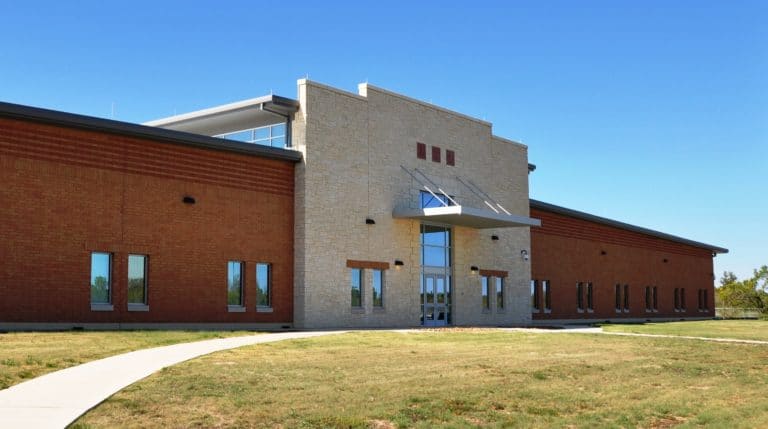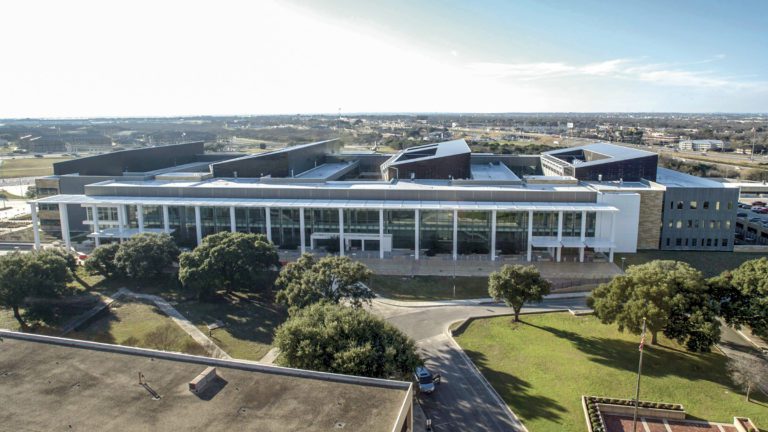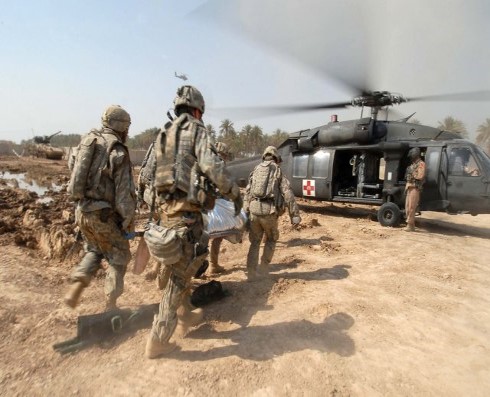US Military & Bioscience
Resources
The US Military as a Bioscience Resource
Medical research is conducted at multiple locations in San Antonio by the 59th Medical Wing, the Brooke Army Medical Center, the US Army Institute for Surgical Research (USAISR), and the Navy Medical Research Unit (NAMRU). Additionally, important military relevant collaborative research is conducted by the 711th Human Performance Wing Bioeffects Division.
Collaborations and grants can be facilitated by these organizations: the Geneva Foundation, Eagle Global Scientific, the Henry M. Jackson Foundation for the Advancement of Military Medicine, the Metis Foundation, and the Military Health & Research Foundation.
There are several events in San Antonio that provide a great opportunity to meet with military leaders and researchers to learn more, including San Antonio Military Medical Industry Day, the San Antonio Military Health and Universities Research Forum (SURF), and the Operational Medicine Symposium & Technology Showcase. Current registration information for these events are available here.
Free consultation and training on how to work with the US government is available from the Procurement Technical Assistance Center at UTSA.
How to Work with the Military
Military Bioscience Resources in San Antonio
Focus: the development and performance of medical readiness training for expeditionary forces
- Research areas: En Route Care, Trauma, Resuscitation & Stabilization; Diagnostics, Therapeutics & 'Omics; Modeling Simulation Training; Clinical Rehabilitative Medicine; Clinical Investigations
- The Air Force Medical Service’s largest and most productive research facility.
- The Chief Scientist provides senior leadership and develops collaborations between Service, DOD, local, national and international government, academia, industry, research, development, test, evaluation and acquisition organizations.
For more information contact the 59th Medical Wing Office of the Chief Scientist, 210-292-2097 (office), debra.m.niemeyer.civ@mail.mil
Focus: utilize advancements to improve clinical practice guidelines, hemorrhage control, and treatment of patients with vascular injuries
- Technologies and techniques explored: modulation of dysregulated immune response triggered by trauma, molecular therapeutic targets to increase survivability, decrease resuscitation fluid requirements, reduce coagulopathy, dampen inflammation, protect against ischemia/reperfusion-mediated tissue damage, life-saving surgical techniques during the golden hour, portable/ruggedized technologies to optimized critical care in theatre, during transport, and in austere conditions.
For more information, contact the 59th Medical Wing Office of the Chief Scientist, 210-292-2097 (office), debra.m.niemeyer.civ@mail.mil
Focus: evidence based improvement of trauma and combat casualty care
- DOD Trauma Registry (DoDTR) collects data about the demographics, incidents, diagnoses, treatments and outcomes of injuries sustained by US/Non-US military and civilian personnel.
- Integrated multi-specialty registries: acoustic, infectious disease, military en route care (MERCuRY), military orthopaedic trauma (MOTR), pre-hospital trauma (PHTR), recovery and rehabilitation, traumatic brain injury (TBI), and vision.
- Data is analyzed to coordinate performance improvement and training
- Research Areas: critical care systems, multi-organ support therapies, burn injuries, systems of care for complex patients, extremity trauma and regenerative medicine, coagulation and blood research, damage control resuscitation, tactical combat casualty care (TCCC), and ocular trauma
- Research Capabilities: hemorrhagic shock, hemostasis, resuscitation, coagulation and inflammation, burns and inhalation injury, hard- and soft-tissue extremity trauma, regenerative medicine, pain management, craniomaxillofacial trauma, medical monitoring, and intensive care.
- Testing capabilities: routine chemistry, blood gas, complete blood counts, hematology, coagulation, microbiology, histopathology, biofilm formation and susceptibility ,anatomic pathology, blast tube/pressure, and pre-clinical (pigs, sheep, goats, rabbits, rodents)
- Laboratory capabilities: mRNA and DNA microarray scanning, quantitative real time PCR, flow cytometry, immunophenotypic analysis, mass spectroscopy, high-performance liquid chromatography, gas chromatography, gene expression and genomic analysis, flow cytometry, Lower-Body Negative Pressure (LBNP), and video-microscopy.
- For more information, call (210) 539-2720 or email alicia.t.crowder.civ@mail.mil
Focus: optimizing burn, trauma and combat casualty care
- Army, Navy and Air Force
- Research Areas: pre-hospital and en route patient care, tourniquet, and other devices to stop hemorrhage, automated monitoring, and decision support devices for battlefield critical care, burn resuscitation, and devices to keep patients warm.
Focus: Identification, diagnosis, and treatment of trauma involving head, neck, and spine injuries, and neurological and sensory injuries due to force or directed energy
- Research areas: acute effects of Head/neck/spine injury, multi-sensory effects of traumatic brain injury (TBI), and biomarkers for prognosis of head, neck, spine, neurological and sensory injuries
- Capabilities: animal models for directed energy and blasts; monitoring/diagnostic strategies for austere injury treatment; and, telemedicine
- 59th Medical Wing, Center for Hearing Excellence (Joint Base San Antonio), Tri-Service Research Lab, Air Force Combat Casualty Care Center (Joint Battlefield Health and Trauma Institute)
- For more information, contact the 59th Medical Wing Office of the Chief Scientist, 210-292-2097 (office), debra.m.niemeyer.civ@mail.mil
Focus: medical, craniofacial, biomedical and directed energy research
- Combat Casualty Care and Operational Medicine Research Areas: protection, resuscitation, and stabilization of combat casualties at frontline points in the combat theatre, therapeutics for hemorrhagic shock, stem cell and immune-based therapeutics to reduce injuries from trauma and promote tissue repair, and the evaluation of medical devices, treatments, and diagnostic tools.
- Craniofacial Health and Restorative Medicine Research Areas: R&D and evaluation of biomaterials, data analysis for improvement of diagnosis, treatment and prevention of craniofacial and oral injuries and diseases, R&D on the pathophysiology, microbiology, immunology, and etiology of diseases leading to treatments for resistant infections, and amalgam separator technology and monitoring.
- For more information, contact the Chief Science Director at (210) 539-0960 or sylvain.cardin.civ@mail.mil
Focus: study directed energy weapons effectiveness and protection of service members
- Capabilities: laser and biological research labs, echo-free chambers, pre-clinical studies
- Research areas: directed energy effects on living systems and tissues, non-lethal directed energy weapons, directed energy weapon protection, pre-clinical study design, and veterinary support
Focus: improve early detection methods, treatment and recovery from communicable illness and non-battlefield injuries to improve return to duty turnaround times
- Research: decontamination practices; clinical field diagnosis and treatment of infectious diseases; disinfectant measures; austere respiratory disease; austere dietary GI issues; dehydration; vector-borne diseases; non-battlefield injuries; pain suppression/regulation; dermatologic, psychologicl, immunologic, genitourinary, MSK/orthopedic emergencies; soft tissue injuries
- Combat Casualty Care Center (Joint Battlefield Health and Trauma Institute)
- For more information, contact the 59th Medical Wing Office of the Chief Scientist, 210-292-2097 (office), debra.m.niemeyer.civ@mail.mil
Focus: patient movement capability gaps from point of injury to point of final definitive care
- Care areas: medical evacuation, aeromedical evacuation, critical care air transport team and burn flight team
- Research topics: spinal fractures, blood transfusion, sepsis, acute coronary syndrome, burns, acute and chronic pain, traumatic brain injury, lifesaving interventions, hemorrhagic shock, and compartment syndrome.
- Institute of Surgical Research and 59th Medical Wing
- For more information, contact the 59th Medical Wing Office of the Chief Scientist, 210-292-2097 (office), debra.m.niemeyer.civ@mail.mil
Focus: precision care, molecular diagnostics, and regenerative medicine.
- Research areas: translation of biomarker discovery into diagnostic tests, machine learning to improve molecular assays,
- Only Defense Health Agency (DHA) research center conducting surveillance of military-relevant pathogens (epidemiology)
- For more information, contact the 59th Medical Wing Office of the Chief Scientist, 210-292-2097 (office), debra.m.niemeyer.civ@mail.mil
Focus: extracorporeal life support, large animal models of hemorrhage and resuscitation, therapeutic evaluation and fluid requirements, medical toxicology and antidote evaluation.
- Research areas: clinical practices to improve mass casualty response and evacuation; advanced medical response and evacuation team coordination; unmanned casualty evacuation; remote telemedicine; wearable and implantable biosensors care of injuries; research related to envenomation, toxins, and biologics.
- 59th Medical Wing and Combat Casualty Care Center (Joint Battlefield Health and Trauma Institute)
- For more information, contact the 59th Medical Wing Office of the Chief Scientist, 210-292-2097 (office), debra.m.niemeyer.civ@mail.mil
Focus: the prevention, diagnosis and treatment of disease and injury, including trainee health and fitness
- Research Areas for diagnostic test development and biomarker discovery: precision therapies, preservation of tissue for surgical reconstruction; increase probability of successful injury rehabilitation;
- Additional Research Areas: infectious disease mitigation; wound healing; therapeutics for injury, disease and pain management; and interventions for substance abuse.
- For more information, contact the 59th Medical Wing Office of the Chief Scientist, 210-292-2097 (office), debra.m.niemeyer.civ@mail.mil
Focus: advance science of Vascularized Composite Allotransplantation (VCA), immunomodulation, and regenerative medicine
- Research Areas: translational models and clinical reconstruction and refunctionalizing VCA and auto-transplants, donor-specific immunomodulation, a combination of biologic scaffolds, adult stem cells and growth factors for replacement tissues, improved range of motion, scar compliance, and aesthetics with improved safety and efficacy
Focus: Research, surveillance, and treatment for substance abuse among military members
- Research Areas: medications to reduce substance misuse, evidence-based practice recommendations for intervention, prevention treatment, point-of-care early detection testing, and reintegration and follow-up strategies.
- For more information, contact the 59th Medical Wing Office of the Chief Scientist, 210-292-2097 (office), debra.m.niemeyer.civ@mail.mil
Focus: clinical, laboratory, and consultative services for dental equipment, materials, facilities, infection control, and occupational health and safety.
- Areas of interest: Evaluation of dental equipment and materials, dental research, consultant service for USAF dentists, review facility projects, international dental standards, educational support for dental residents
- Battlefield Health and Trauma Institute of Surgical Research at Fort Sam Houston
Focus: readiness (refractive surgery), education (ophthalmology residency) and research for vision enhancement
- Research areas: evaluation of refractive technology, clinical trials, and pre-clinical studies
- Largest Clinical Investigation Program in the Air Force
Conducts military and non-military pre-clinical and clinical studies
Provides consulting services for pre-clinical and clinical studies
Functions as IRB for Air Force, Army, Navy, universities and private companies - Research areas: vascular injury management, medical toxicology, emergency medicine, regenerative medicine, stem cell research, dental, genomics
Laboratory support: chemistry, toxicology, hematology, molecular biology, cell biology and immunology, and microbiology. - For more information, contact the 59th Medical Wing Office of the Chief Scientist, 210-292-2097 (office), debra.m.niemeyer.civ@mail.mil
- Clinical research and the translation of research in support of patient care
- Currently conducting 10 research studies
- For more information, contact the 59th Medical Wing Office of the Chief Scientist, 210-292-2097 (office), debra.m.niemeyer.civ@mail.mil
- Clinical research and the translation of research in support of evidence-based practice
- Coaching, teaching, and mentoring nursing staff
- For more information, contact the CNSCI Research Protocol Coordinator for further questions at (210) 916-2482 or email at usarmy.jbsa.medcom-bamc.mbx.bamc-cnsci@mail.mil
Focus: laboratory, pre-clinical and clinical research
- For more information, contact the DCI Chief at (210) 916-2444 or the Deputy Chief at (210) 916-4405.
- Research Capabilities: pre-clinical studies, gait analysis, web lab, and clinical studies for the VA, pharmaceutical industry, and investigational drugs






